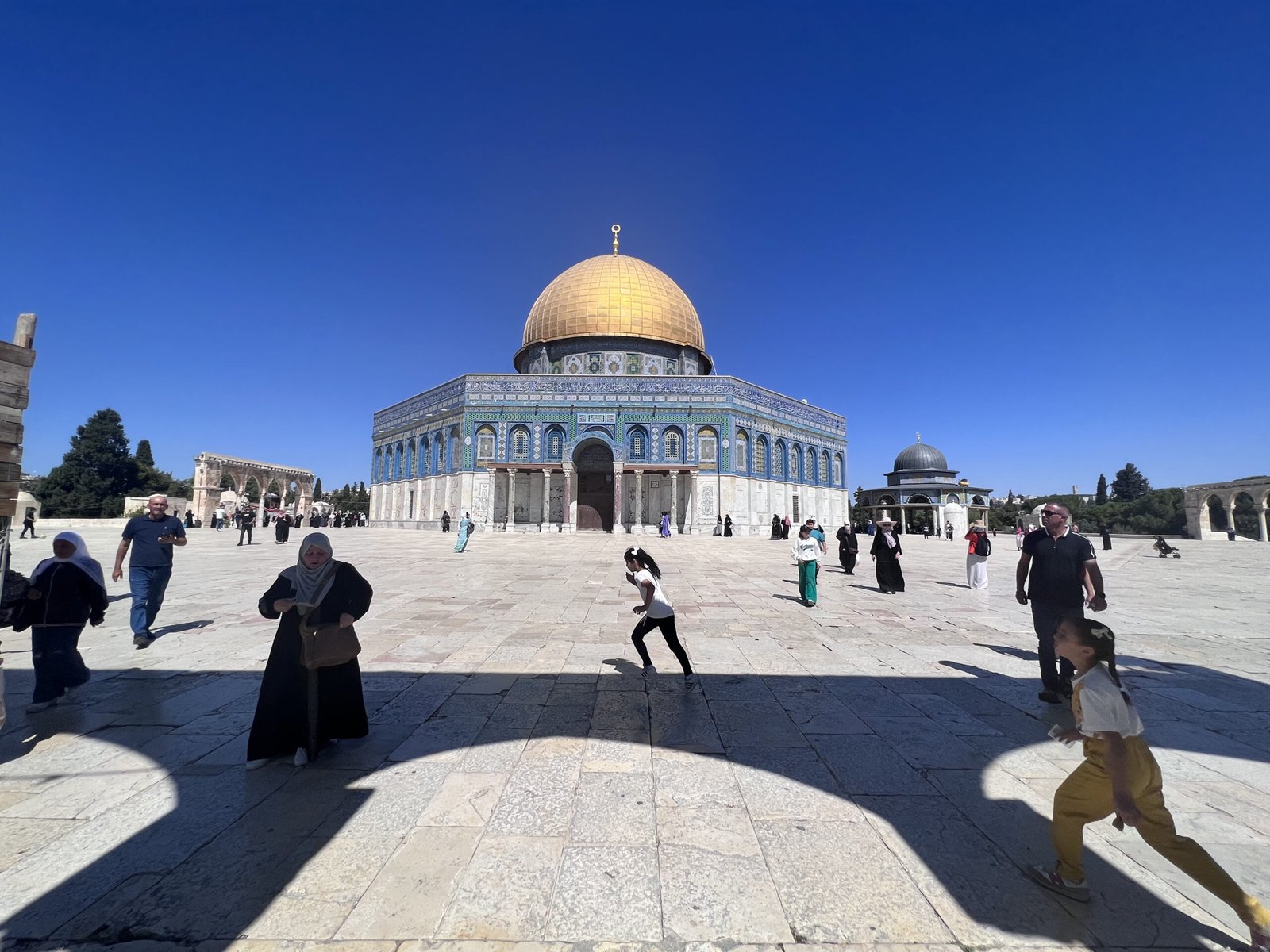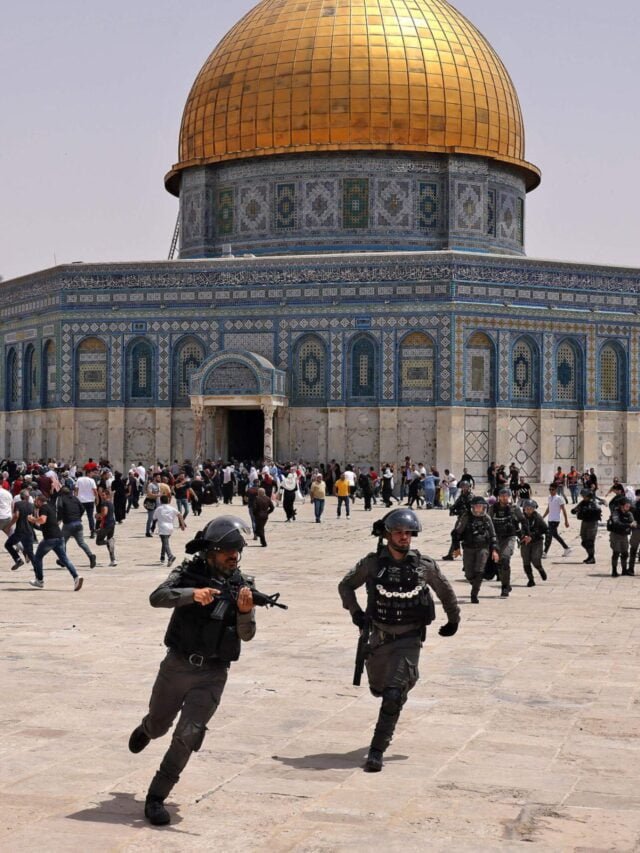Table of Contents
Israel Al-Aqsa Mosque Controversy Unfolds
Israel Al-Aqsa Mosque in Jerusalem have escalated significantly following a highly controversial visit by an Israeli minister to the Al-Aqsa Mosque, one of the most sacred sites in Islam. The minister’s decision to pray at this flashpoint location has ignited a wave of outrage, both within Israel and across the international community. The incident has once again brought the sensitive issue of religious practices at the Al-Aqsa Mosque into the spotlight, raising concerns about the potential for further conflict in the already volatile region.
The Israeli Minister’s Controversial Visit and Prayer
The controversy began when an Israeli minister, whose identity has not been officially confirmed but widely reported in the media, visited the Al-Aqsa Mosque compound. During the visit, the minister engaged in Jewish prayer, an act that is highly contentious given the complex religious and political dynamics surrounding the site.
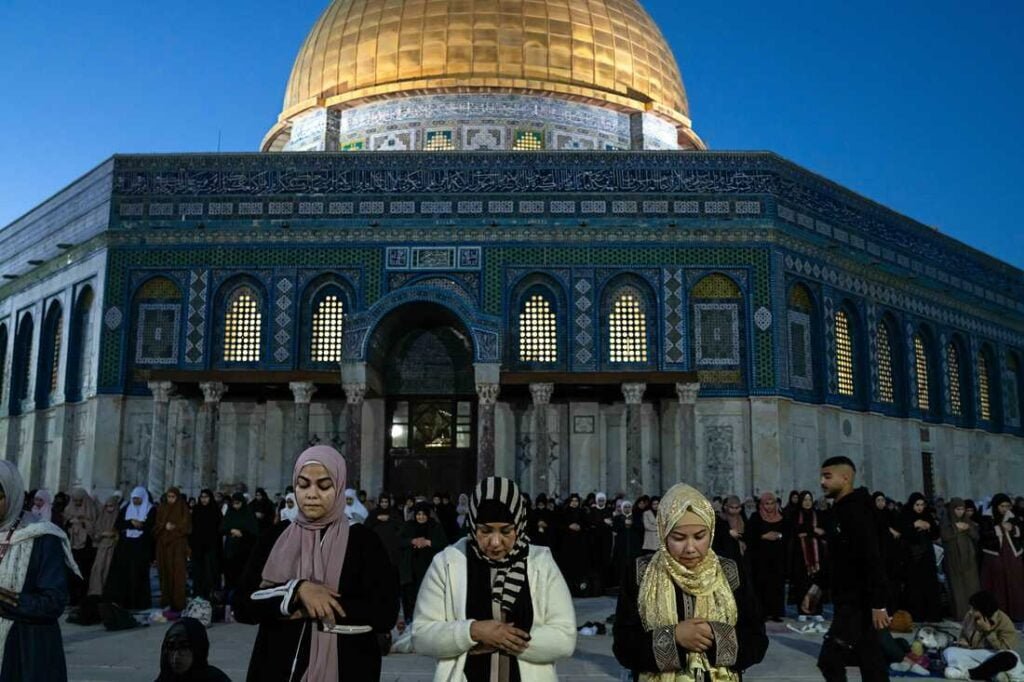
The Al-Aqsa Mosque is located on the Temple Mount, known in Hebrew as Har HaBayit, a site revered by both Muslims and Jews. While the mosque itself is an Islamic holy site, the Temple Mount is also the location of the two ancient Jewish Temples, making it a deeply significant place for Jews as well. However, under the current status quo, Jewish prayer is generally not permitted on the Temple Mount to avoid exacerbating tensions between the two religious communities.
The minister’s actions have been perceived by many as a direct challenge to this delicate arrangement, leading to widespread condemnation. Critics argue that the visit was a provocative move that could inflame religious and political tensions, both within Israel and in the broader Middle East.
Global and Domestic Reactions: Outrage and Condemnation
The response to the minister’s visit has been swift and severe, with condemnation coming from a broad spectrum of voices. Within Israel, political figures from both the left and right have expressed concern that the minister’s actions could destabilize the already fragile situation in Jerusalem. Religious leaders have also weighed in, with some warning that the incident could lead to a dangerous escalation of violence.
Internationally, the reaction has been similarly critical. The Palestinian Authority, along with several Arab and Muslim-majority countries, has denounced the visit as an affront to Islamic sanctities and a violation of the status quo at the Al-Aqsa Mosque. The incident has also drawn rebukes from global organizations, including the United Nations, which has called for restraint and respect for religious freedoms.
The controversy has not been limited to the political sphere; it has also sparked significant public outcry. Protests have been reported in several cities across the Middle East, with demonstrators expressing solidarity with the Palestinian cause and condemning the Israeli government’s actions. Social media platforms have also seen a surge in discussions about the incident, with hashtags related to Al-Aqsa trending worldwide.
The Historical and Religious Significance of Al-Aqsa Mosque
To understand the gravity of the situation, it is essential to consider the historical and religious significance of the Al-Aqsa Mosque. The mosque is the third holiest site in Islam, after Mecca and Medina, and holds profound spiritual importance for Muslims around the world. It is believed to be the location where the Prophet Muhammad ascended to heaven during the Isra and Mi’raj.
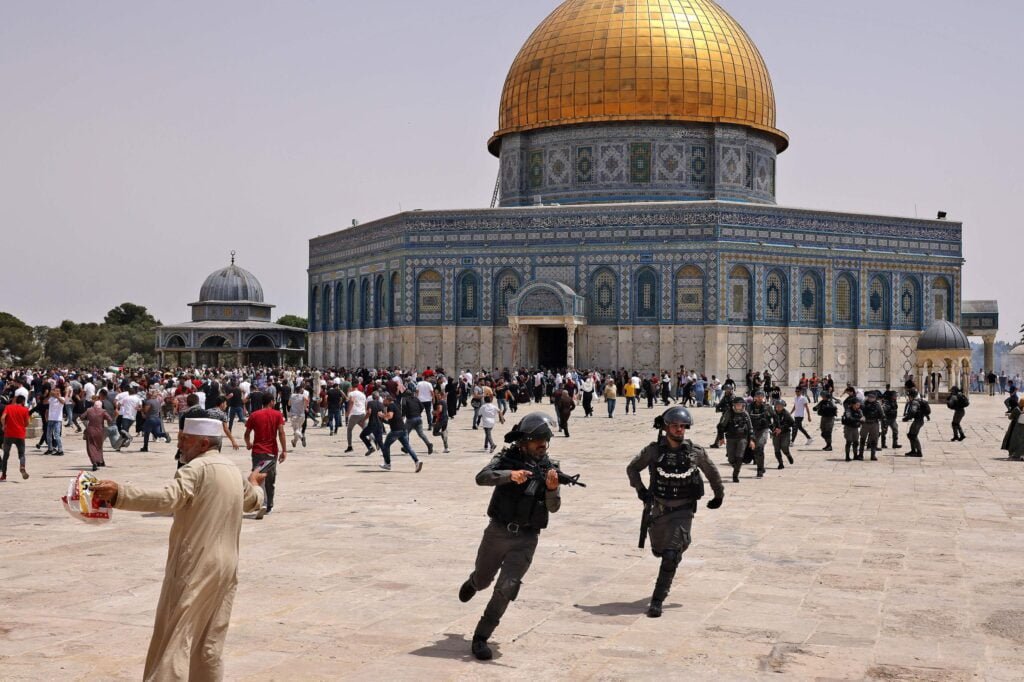
For Jews, the Temple Mount is the holiest site in Judaism, as it is the location of the First and Second Temples, which were central to Jewish worship until their destruction in antiquity. The Western Wall, a remnant of the Second Temple, remains a site of prayer and pilgrimage for Jews, further underscoring the deep religious significance of the area.
The overlapping religious claims to the Temple Mount/Al-Aqsa Mosque compound have made it one of the most contested and sensitive places in the world. Any perceived change to the status quo at the site can trigger widespread unrest, making it a focal point for broader Israeli-Palestinian tensions.
Political Implications and Tensions in the Region
The minister’s visit to the Al-Aqsa Mosque has far-reaching political implications, particularly in the context of the Israeli-Palestinian conflict. The incident has exacerbated existing tensions between Israel and the Palestinian territories, with Palestinian leaders warning that the move could lead to a new wave of violence.
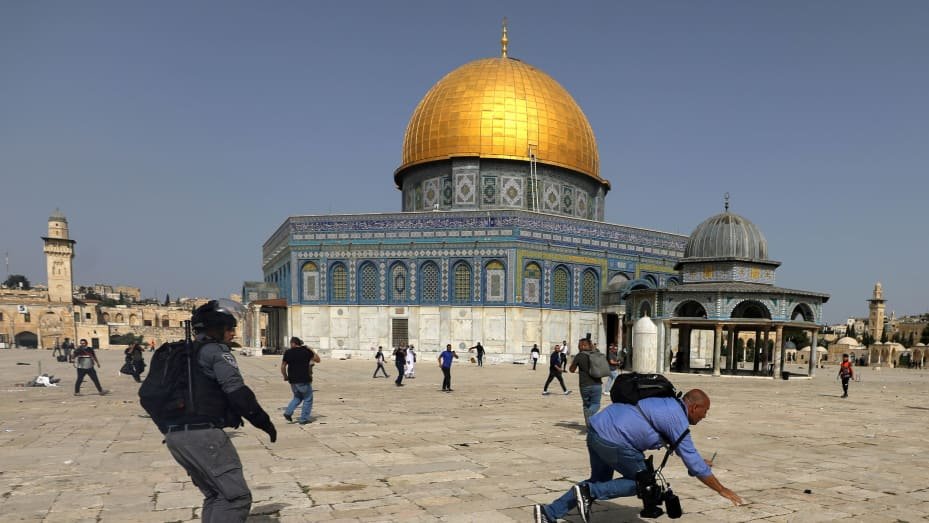
In addition to fueling tensions within Israel and the Palestinian territories, the controversy has also strained Israel’s relations with its Arab neighbors. Countries such as Jordan and Egypt, which have peace treaties with Israel, have expressed their disapproval of the minister’s actions, highlighting the potential for diplomatic fallout.
The timing of the incident is also significant, as it comes amid ongoing efforts to negotiate peace agreements and normalize relations between Israel and several Arab states. The controversy could complicate these efforts, as it reinforces longstanding grievances and suspicions about Israel’s intentions regarding the Al-Aqsa Mosque and the broader Temple Mount area.
International Responses and Diplomatic Repercussions
The international community has reacted strongly to the controversy, with several countries and organizations issuing statements of concern. The United Nations has reiterated its call for all parties to respect the status quo at the Al-Aqsa Mosque and to avoid actions that could escalate tensions.

In addition to official statements, diplomatic channels have been active in trying to defuse the situation. Discussions between Israeli and Palestinian representatives, as well as with leaders from other affected countries, have been ongoing in an attempt to prevent the controversy from spiraling into a larger conflict.
The incident has also prompted renewed calls for a more comprehensive and lasting solution to the Israeli-Palestinian conflict. While the controversy over the minister’s visit is a symptom of deeper issues, it has underscored the urgent need for dialogue and compromise to address the underlying tensions that continue to plague the region.
Navigating the Complexities of the Al-Aqsa Dispute
The controversy surrounding the Israeli minister’s visit to the Al-Aqsa Mosque highlights the complex and deeply sensitive nature of religious and political issues in Jerusalem. The incident has sparked widespread outrage and condemnation, both within Israel and across the international community, and has the potential to escalate into a broader conflict if not carefully managed.
As the situation continues to unfold, it is crucial for all parties involved to exercise restraint and to engage in dialogue aimed at preserving the status quo at the Al-Aqsa Mosque. The site holds profound significance for millions of people, and any actions that threaten its stability could have far-reaching consequences for the region and beyond.
Ultimately, the controversy serves as a reminder of the challenges inherent in navigating the intersection of religion and politics in one of the world’s most contested and sacred spaces.
For Latest News Updates Click Here
